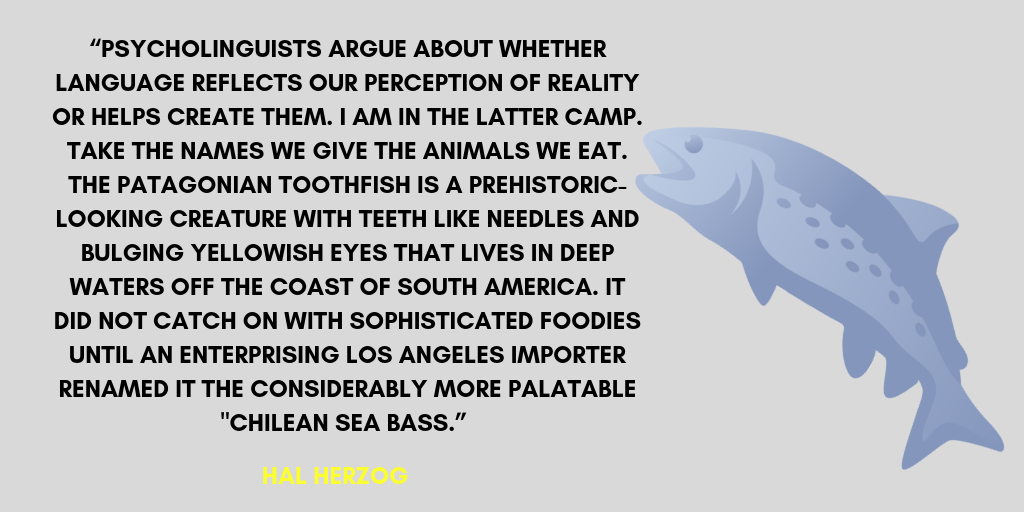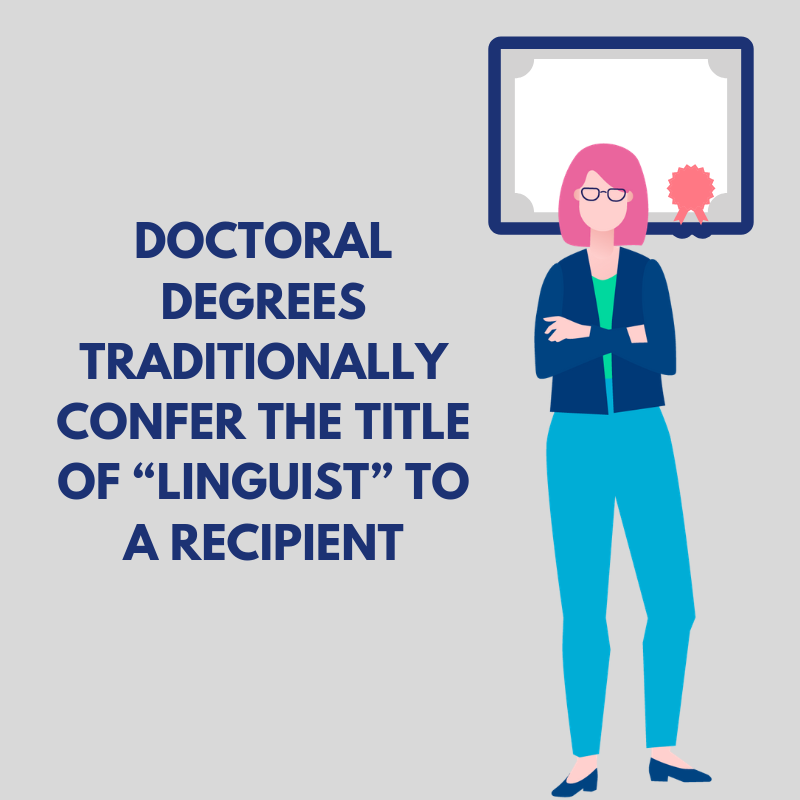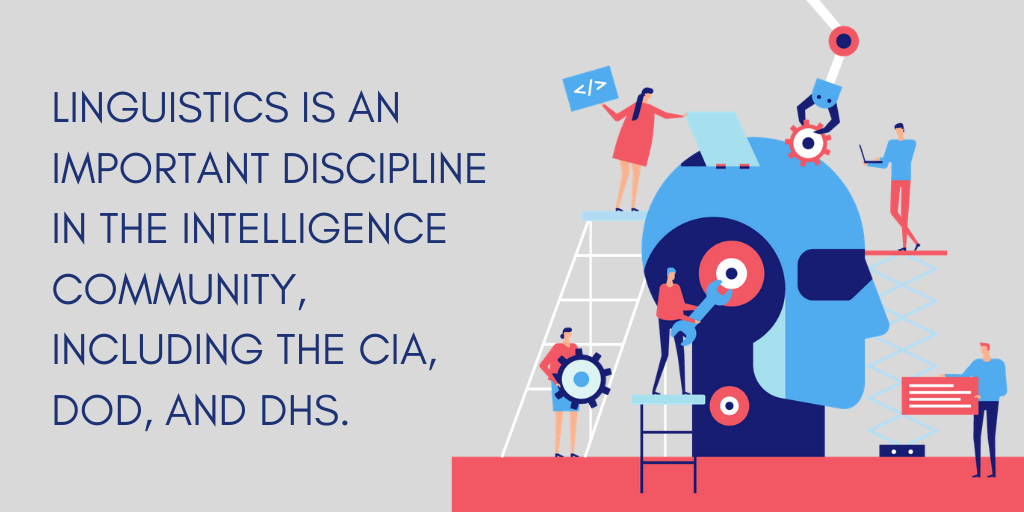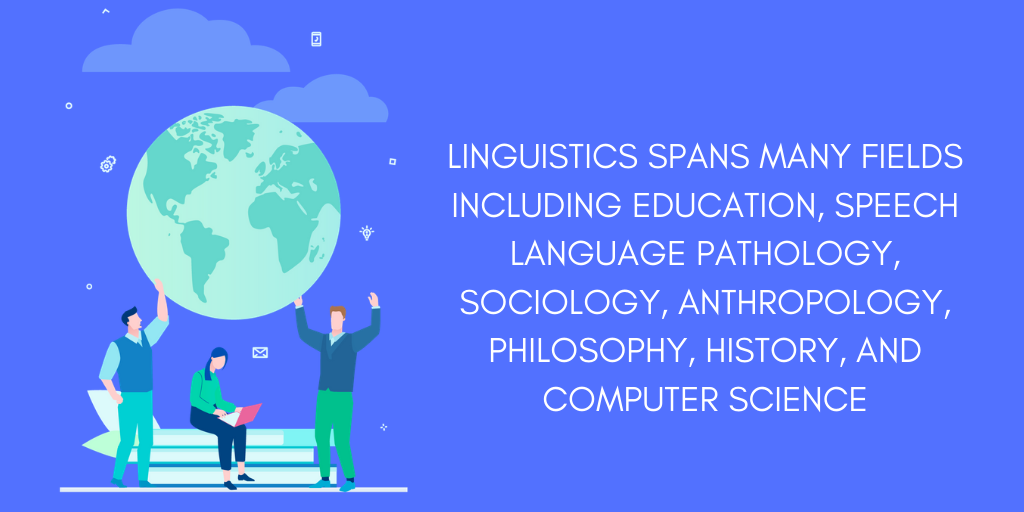![]() There are over 6,500 languages spoken in the world today. And while 2,000 of those languages have fewer than 1,000 speakers each, each gives us clues to our collective past, access to customs and knowledge of the presence, and a unique lens through which to view the world.
There are over 6,500 languages spoken in the world today. And while 2,000 of those languages have fewer than 1,000 speakers each, each gives us clues to our collective past, access to customs and knowledge of the presence, and a unique lens through which to view the world.
Even dealing with just the most popular languages, one would have to know three to be able to speak with half of the world’s inhabitants. Mandarin Chinese, one of the most ancient and nuanced languages, is also the world’s most widely spoken language. And among the romance languages, a greater portion of the world speaks some variety of Spanish than English. This is all to say that for those unique few who get a thrill from studying the nuance and richnesses of other languages, there’s a big, big world out there.

There are also many career opportunities for students of linguistics. While some academic focus areas within linguistics are a bit obscure, many aspects of linguistics are also in great demand. State agencies like the state department, the pentagon, and the CIA employ linguists in droves. As the world has become more connected through trade and the internet, many corporations find themselves in need of linguistic aid.
In this guide we’ll look at a variety of questions many potential students of linguistics have.
Jump to Section:
- What Linguistic Degrees Are Available?
- Can I Get A Linguistics Degree Online?
- Degrees Related to Linguistics
- What Can I Do With a Linguistics Degree?
Don’t see what you’re looking for? Be sure to check out some of DegreeQuery’s related coverage below:
- What Can I Do With a Sociology Degree?
- What Can I Do With a Liberal Arts Degree?
- What Can I Do With a Degree in Science?
- 50 Highest Paying Bachelor’s Degrees
- Easiest Online Master’s Degrees
- Easiest Online Associate’s Degrees
- The 20 Easiest Online Bachelor’s Degrees
- What degree do I need to be a Speech Therapist?
- What degree do I need to become a Speech Pathologist?
- What degree do I need to become a Translator?
- What degree do I need to become an Archeologist?
- What Can I Do With an Archaeology Degree?
- What Can I Do With An Anthropology Degree?
- Can I Study Abroad While Earning My Master’s Degree?
- What Can I Do With a Creative Writing Degree?
- What Can I Do With an Archaeology Degree?
- What Can I Do with an American Studies Degree?
What Linguistic Degrees Are Available?
Linguistics degrees are available at the associates, bachelor’s, masters, and doctoral levels. Historically, bachelor’s and doctoral degrees have been the primary degrees that lead one to be called a “linguist.” With that said, different academic routes work for different students.
At the associates level, students are exposed to general education courses as well as the theoretical foundations of linguistics. Many programs are the associates-level are interdisciplinary and meant to expose students to the range of ways that language and language behavior can be analyzed. Courses may come from a variety of disciplines and look at the history, psychology, and social nature of language use.

While courses will likely vary, some of the most common courses offered in an associates-level linguistics degree include:
- History of the English Language
- Intro to Linguistic Anthropology
- Society and Language
- Language and the Mind
- Acquisition of Language
- Choice of multiple foreign language electives
Associates degrees most regularly require 60 credit hours for completion, and require around 2 years to complete with normal full-time study. Many associates-level programs offer transfer programs that afford students automatic admission to local four-year programs upon satisfactory completion of an associate’s degree.
Bachelor’s in linguistics are the primary entry point to the academic field of linguistics. While some students seeking to pursue advanced degrees may major instead in anthropology, a foreign language, education, or philosophy, a bachelor’s in linguistics is the most direct way to enter the field.
As with other bachelor’s degrees, programs often require 120 credit hours for completion. At a typical full-time schedule, this takes most students four years of study. As with an associates degree, students are required to begin their bachelor’s degree with a number of general education requirements. General education requirements are meant to assure that students are well-rounded and introduced to a range of topics during their collegiate years.
Common courses required as general education credits at the bachelor’s level include:
- Natural Sciences
- Social Sciences
- Humanities
- Ethics, Philosophy, or Religion
- A Foreign Language
- Mathematics
- Literature
- Writing
- Computer Literacy

Among major courses, students are exposed to many of the same courses offered at the associates level, though which much greater chances that room to specialize in one area of linguistics are present in the program. Courses taken within a baccalaureate-level linguistics major typically include:- Accents and Dialects
- Language and Music
- Historical Linguists
- The Mind and Language
- Myths About Language
- Structures and Shapes of Words
- Sociolinguistics
- Languages in Contact
- Language Acquisition
- Historical Linguistics
- Comparative Linguistics
- Phonological Analysis
- Prosody
- Syntax
- Semantics
- Pragmatics
- Computational Linguistics
- Among Others
At the master’s level, students particularly pursue master’s in linguistics through two routes. Students who have gained admission to a doctoral program straight out of undergraduate study receive their master’s degree “en route.” This means that a fraction of the way through their doctoral program, they are awarded a master’s degree. Other students elect to pursue a terminal master’s degree.
Terminal master’s degrees in linguistics may be used to:
- Build on bachelor’s-level knowledge of linguistics
- Discern if you would like to pursue linguistics further
- Qualify for some linguistics-related jobs
- And provide a chance to gain a more competitive transcript for doctoral admissions
Master’s degrees allow for students to take a greater number of advanced linguistics courses than bachelor’s degrees. But they still don’t focus on original research like a doctoral degree. Students at the end of a master’s degree will have completed a thesis, which is a hundred+ page summation of current scholarship within their field of study.
At the master’s level, common specializations that one may pursue in linguistics include:
- Prosody
- Romance Linguistics
- Sign Language Linguistics
- Theoretical Semantics or Syntax
- Language Acquisition
- Pragmatics and Information Status
- Field Linguistics And Language Documentation
Additionally, most master’s degrees ensure that students hold a solid understanding of the core disciplines within linguistics. Most courses of study will ensure that you take advanced coursework in semantics, syntax, and phonology.

Finally, doctoral degrees in linguistics prepare students to perform original scholarship within the field as well as to assume the title of “linguist.” The primary doctoral degree type within linguistics is that of doctor of philosophy (Ph.D.). Ph.D. degrees are research doctorates, which means that two of the primary goals of the program are to prepare candidates to teach at the university level, as well as to perform original research.Successful Ph.D. candidates will complete and defend a dissertation. A dissertation is a several hundred page document of original research. In theory, dissertations should be of high enough quality to be published in a peer-reviewed journal. Some are published in this fashion, while others are just deemed of comparable quality by a committee of scholars.
Can I Get A Linguistics Degree Online?
As with most types of degrees today, you can obtain linguistics degrees online. This is particularly true of degrees at the associates through master’s levels. Many doctoral degrees within linguistics require field research that may be accompanied by online coursework, though is by nature “in the field.” Additionally, lab work within every level of schooling related to linguistics is often in-person.
With that said, there are a handful of programs at every level that offer online linguistics degrees.

Online degrees can be a great option for some students. Though students seeking to determine the proper path for themselves should consider a few elements before deciding on a program.Some of the most commonly noted positive aspects of online degree delivery include:
- Lower fees (and some programs offering in-state tuition to out-of-state, online students)
- No need to move or quit a job due to pursuing a degree
- Greater flexibility
While some of the most commonly noted negative aspects of online degree delivery include:
- Less support services
- A greater need to a be a “self starter” in online programs
- Not as much of a collegiate “experience.”
- Lack of access to networking events and difficulty meeting classmates and professors
As you can likely tell from the above, there are some strong pros and cons to either option. Depending on your personal needs, however, it’s likely that you will find a program that suits you well.
Degrees Related to Linguistics
Among linguistics degrees, there are two main fields of study in which there are many subfields or specializations.
The two major fields of study include:
- Applied linguistics, which focuses on translating untranslated languages, capturing records of languages that have not been recorded, as well as the study of how better to teach language.
- And theoretical linguistics, which focuses on the history of languages, reconstructing past languages, creating “ideal” languages and thinking about how the brain processes languages.
[graphic idea 6: Linguistics spans many fields including education, speech language pathology, sociology, anthropology, philosophy, history, and computer science]
As you may note, there is a great deal of overlap between these two disciplines. And both use tools from the other. Additionally, what is considered applied or theoretical linguistics can vary from nation to nation.Additionally, linguistics helps to inform and is related to a number of other academic disciplines. Depending on your end goal for your education, you may choose to start with a linguistics degree and finish your study in a related field or with an applied degree. Some of the most closely related academic study areas include:
- Education (particularly education of languages)
- Speech Language Pathology
- Translation or a Foreign Language
- Common Language Philosophy
- And some elements of computer science (as in computational linguistics)
What Can I Do With a Linguistics Degree?
Linguistics degrees are unique degrees in that they can be quite applied depending on your focus area. They can also be quite open-ended, and like a humanities degree prepare you for many jobs without specifically preparing you for one.

With that said, many linguistics graduates work in one of the following roles related to linguistics:- Linguist
- Foreign Language Teacher
- Translator
- Speech Language Pathologist
Linguists work within governmental as well as university settings. Some linguists are additionally employed within corporate America, most notably in computational linguistics among software companies.
Within academic settings linguists typically focus on one subset of either applied or theoretical linguistics. Depending on the type of college or university worked at, professors may spend a minority to all of their time performing research and the remainder of their time teaching courses.
Within governmental settings, linguists often work within intelligence agencies such as the CIA, the FBI, the Pentagon, and the DHS. Linguists may work to provide analysis of intelligence intercepted in other languages. They may work along with cryptologists to crack codes, and they may work as translators.
While pay may vary greatly depending on level of seniority and location of work, linguists nationwide make an average of $67,668 a year in salary.
Foreign language teachers are employed in kindergarten through graduate school educational systems, as private teachers, as well as within corporate settings. Foreign language teachers wishing to see the world often teach a language foreign to where they are headed. Knowledge of multiple languages that is often held by linguists enhances this flexibility.
Within K-12 schooling, linguist graduates may teach a language without licensure in most private schools, and will need to return for some for of licensure in most public school settings.
Within corporate jobs, some large employers that provide goods or services to multinational audiences employ training in foreign languages. Additionally, many online language learning providers employ tutors or foreign language teachers within private settings.
While numbers can range greatly depending on your clientele, level of experience, and location, foreign language teachers earn an average salary of $43,264.
Graduates of linguistics programs are uniquely well prepared for translator jobs as well. Learning how to break down different languages and compare them from a variety of perspectives allows linguists to provide valuable insight into what exactly documents in foreign languages are trying to express.
Some of the most common locations for employment of translators include governmental agencies, corporations, and non-profits. The average salary for translators is presently $51,790.
Finally, linguistic graduates have many skills that aid in working as speech language pathologists — even if not the proper certifications — and many graduates do go on to join this field.

Speech language pathologists work to diagnose, prevent, and treat speech, language, communication, and cognitive-communication disorders among children and adults. Many speech language pathologists work in public schools. Though speech language pathologists also work in elderly homes, private practice, and hospitals. The average salary for speech language pathologists is presently $76,610.Don’t see what you’re looking for? Be sure to check out some of DegreeQuery’s related coverage below:
- What Can I Do With a Sociology Degree?
- What Can I Do With a Liberal Arts Degree?
- What Can I Do With a Degree in Science?
- 50 Highest Paying Bachelor’s Degrees
- Easiest Online Master’s Degrees
- Easiest Online Associate’s Degrees
- The 20 Easiest Online Bachelor’s Degrees
- What degree do I need to be a Speech Therapist?
- What degree do I need to become a Speech Pathologist?
- What degree do I need to become a Translator?
- What degree do I need to become an Archeologist?
- What Can I Do With an Archaeology Degree?
- What Can I Do With An Anthropology Degree?
- Can I Study Abroad While Earning My Master’s Degree?
- What Can I Do With a Creative Writing Degree?
- What Can I Do With an Archaeology Degree?
- What Can I Do with an American Studies Degree?
